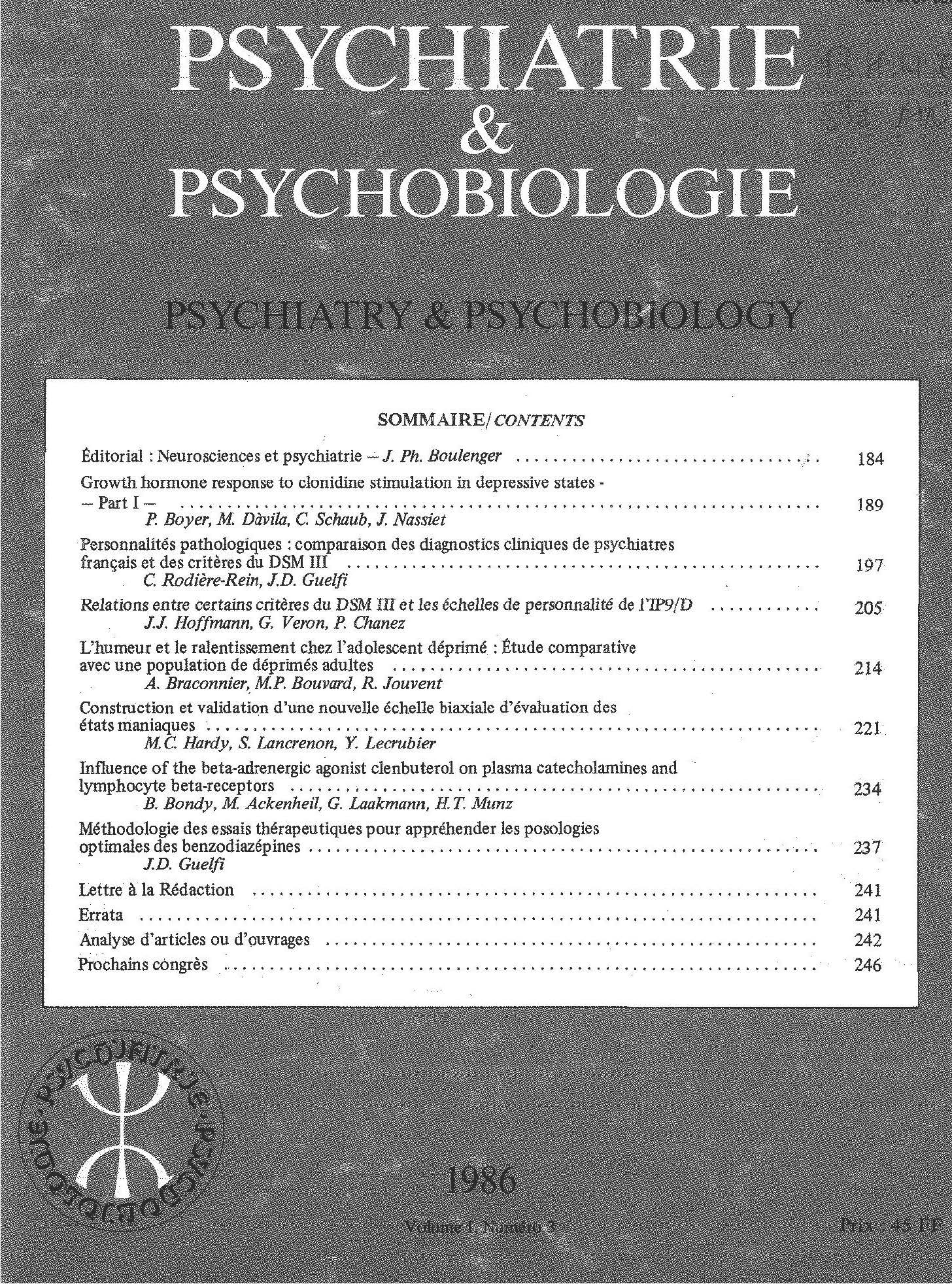Article contents
Explorations des Fonctions Mnésiques et Benzodiazepines
Published online by Cambridge University Press: 28 April 2020
Résumé
Dans le domaine des troubles de la mémoire induits par les benzodiazépines, un des résultats le plus communément admis est que l’information acquise avant la prise du produit est conservée intacte. A l’opposé, les troubles de la mémoire antérograde ne sont pas rares. L’intensité et la durée des troubles de la mémoire antérograde semblent dépendre des facteurs suivants: nature de la benzodiazépine utilisée, dose administrée, voie d’administration, épreuve de mémoire utilisée, nombre d’heures après la prise auxquelles les informations sont présentées et les épreuves de mémoire sont employées, caractéristiques des populations testées. Les épreuves impliquant en quelques secondes une remémoration de peu d’items (jusqu’à 6) ne sont pas perturbées par les benzodiazépines. De la même façon, lorsqu’il s’agit de listes de mots le rappel des derniers mots de la liste n’est généralement pas affecté par les benzodiazépines, tandis que les mots de milieu de liste sont plus difficilement remémorés. En général quand les études ont exploré la mémoire différée, les effets amnésiogènes se sont révélés être plus importants que lorsque la mémoire est testée immédiatement après apprentissage. Deux principales explications des effets des benzodiazépines sur la mémoire ont pu être proposées. Il semble que l’hypothèse d’un défaut de consolidation recueille plus d’arguments en sa faveur que celle d'un apprentissage «état-dépendant». La sédation contribue probablement aux effets amnésiogènes mais ne les explique pas.
Summary
A first general finding concerning the amnesic effect of benzodiazepines (BZDs) is that information acquired before taking the drug is retained intact. In contrast, anterograde amnesia is the most common result of various experimental studies. The degree and the duration of anterograde amnesia depends on the particular benzodiazepine used, on the dosage, on the route of administration, on the memory tasks used, on the times postdrug at which information is presented and retrieval is required and on the characteristics of the subject population tested. Tasks requiring remembering a few (up to 6) items for a period of seconds are not affected by benzodiazepines. Similarly, with the recall of word lists, memory for the most recently presented words is generally unaffected by benzodiazepines, whereas words presented al the beginning and in the middle of word lists are less likely to be recalled by drugged subjects. In general, when studies have tested “delayed” memory, the amnesic effects have been greater and more consistent than when memory is tested immediately after learning. Two main explanations of the effects of benzodiazepines on memory have been put forward; it seems that there is more evidence in favour of the impaired consolidation hypothesis than that of State dependency. Sedation contributes to, but does not explain the amnesic effects of benzodiazepines.
Keywords
- Type
- Research Article
- Information
- Psychiatry and Psychobiology , Volume 3 , Issue S2: Aspects cliniques et cognitifs de l'anxiété Paris, 28 Janvier 1988 , 1988 , pp. 149s - 153s
- Copyright
- Copyright © European Psychiatric Association 1988
References
Références
- 1
- Cited by





Comments
No Comments have been published for this article.